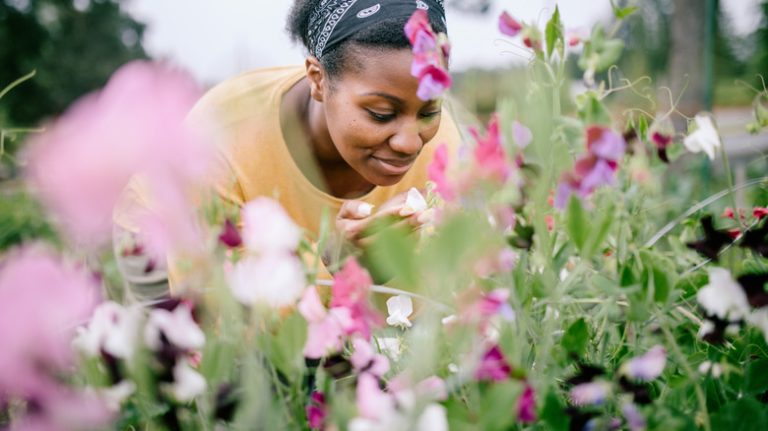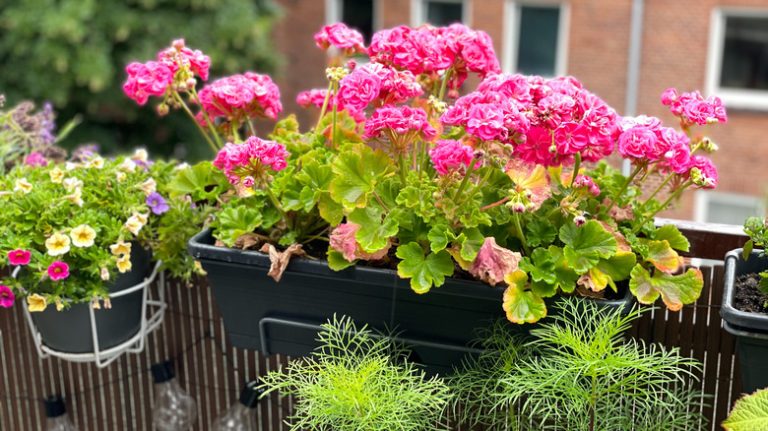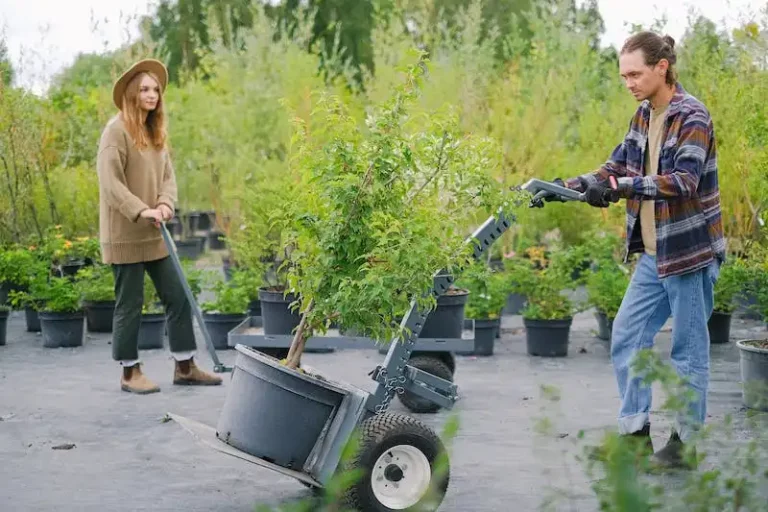Geraniums grace your gardens with beautiful clusters of colorful flowers and foliage. Since geraniums are perennials in warm climates, you may feel a little discouraged when you see yellowing leaves on your plant, even if you’ve been growing it for some time. Yellowing leaves typically mean the plant is dying, right? Fortunately, many of the reasons a geranium’s foliage might turn yellow can be reversed by changing how you care for it before it’s too late.
Most issues are caused by the plant’s environment. Improper watering and fertilizer can cause leaves to turn yellow as it causes the plant to become stressed. These kinds of problems can easily be dealt with, and you can nurse your plant back to good health. Diseases also cause yellow leaves; this problem is certainly harder to fix, but it’s possible to correct the issue, and then try to keep the plant healthy moving forward.
Give your Geraniums the proper conditions
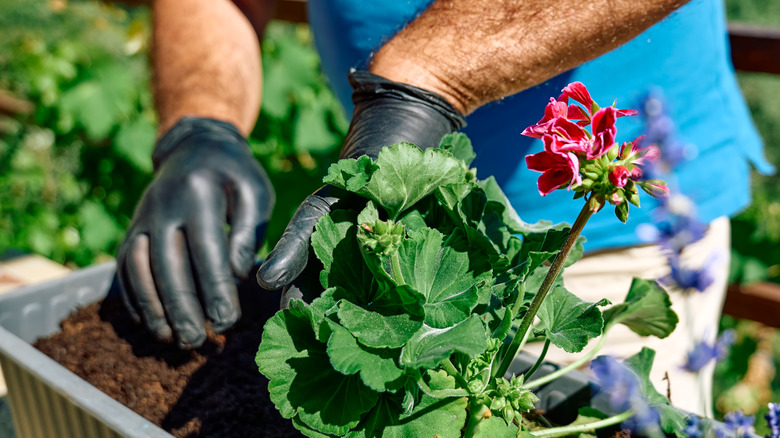
Water is often a problem for gardeners with new plants, whether you’re new to gardening or just new to the plant. Geraniums should dry out a little between waterings, meaning the top inch or so can be completely dry before you water it again. Container plants dry out faster than those planted in the ground, so you may need to water those every day. You may need to repot an overwatered plant into drier soil, and you can correct dry plants by watering them more often. Be sure plants in the ground have good drainage so water doesn’t puddle up and rot the plants’ roots.
Fertilizer is also something to take into consideration. Too much nitrogen or other unnecessary nutrients can stress the plant and turn the leaves yellow. If your potted Geranium is overfertilized, you can leach the excess nutrients out with water. Give it enough water that it drains out the bottom. Repeat the process a few hours later until the fertilizer has been rinsed out.
Nurse your Geraniums back to health
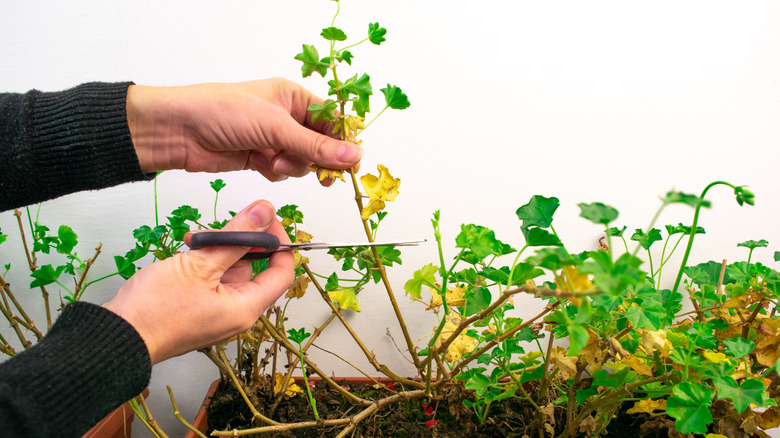
If your Geraniums end up with a viral disease that turns their leaves yellow, you can’t fix the damage that’s been done, but you can help it to get better. Remove the diseased portions of the plant, prune it and surrounding plants to provide more airflow, and take precautions to prevent the spread of diseases. Diseases can spread by splashing water, wind, dirty tools, and insects. Keep your tools clean and water at the base of the plant. Airflow between plants will make it harder for insects to travel between them, making the plants less likely to hit each other in a breeze.
Sometimes, leaves get old, turn yellow, and die. If your plant has been happy all season and you haven’t noticed any changes in sunlight exposure, watering schedule, or pest pressures, it’s likely just a case of an aging plant. Remove the dead leaves and keep caring for your plant as you have been.


